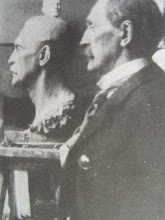"Perhaps the best designation for the most general ‘science’ of order in the Chinese tradition would be ars contextualis. ‘The art of contextualizing’ contrasts with both scientia universalis and ontologia generalis. Chinese thinkers sought the understanding of order through the artful disposition of things, a participatory process which does not presume that there are essential features, or antecedent-determining principles, serving as transcendent sources of order. The art of contextualizing seeks to understand and appreciate the manner in which particular things present-to-hand are, or may be, most harmoniously correlated. Classical Chinese thinkers located the energy of transformation and change within a world that is ziran, autogenerative or literally ‘so-of-itself’, and found the more or less harmonious interrelations among the particular things around them to be the natural condition of things, requiring no appeal to an ordering principle or agency for explanation.
The dominant Chinese understanding of the order of things advertises an important ambiguity in the notion of ‘order’ itself. The most familiar understanding of order in the West is associated with uniformity and pattern regularity. This ‘logical’ or ‘rational’ ordering is an implication of the cosmological assumptions which characterize the logos of a cosmos in terms of causal laws and formal patterns. A second sense of order is characterized by concrete particularities whose uniqueness is essential to the order itself. No final unity is possible in this view since, were this so, the order of the whole would dominate the order of the parts, cancelling the uniqueness of its constituent particulars. Thus, ‘aesthetic’ order is ultimately acosmological in the sense that no single order dominates.
The crucial difference between these two senses of order is that in the one case there is the presumption of an objective standard which one perforce must instantiate; in the other, there is no source of order other than the agency of the elements comprising the order. In the West, mathematical order has been thought the purest. In China, by contrast, any notion of order which abstracts from the concrete details of this-worldly existence has been seen as moving in a direction of decreasing relevance. Rational order depends upon the belief in a single-ordered world, a cosmos; aesthetic order speaks of the world in much less unitary terms. In China, the ‘cosmos’ is simply ‘the ten thousand things’. The belief that the things of nature may be ordered in any number of ways is the basis of philosophical thinking as ars contextualis.
Each of these understandings of order existed at the beginnings of both Western and Chinese cultures, and both have persisted as interpretative options within them. It so happens that in the course of their respective histories, the two cultures made distinctly different choices which led to the variant senses of order as grounds for the organizing of personal, social and cosmic environs. These differing senses of order are reflected in the fact that the nineteenth-century Japanese had to coin the term tetsugaku (philosophy) to translate the Western philosophic tradition and to recover its Japanese counterpart, and that this same expression was soon thereafter imported into China as zhexue for the same purpose. The need to invent a term to refer to ‘philosophy’ suggests at least that these cultures had to reorganize patterns of indigenous intellectual experience in ways previously unfamiliar to them."
Hall, David L.; Roger T. Ames (1998) "Chinese philosophy". En Craig, E. (ed.), Routledge Encyclopedia of Philosophy. London: Routledge.
















No hay comentarios:
Publicar un comentario